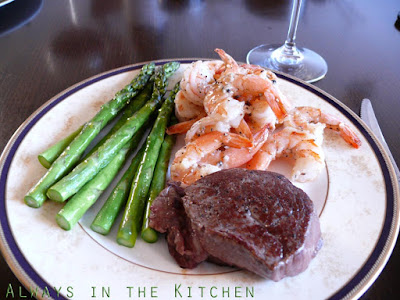I've been a little distracted lately, for a couple of reasons: One, we're looking for a new place to live, which is time-consuming and tedious, and two, I've been unable to update my non-blog site for
Always in the Kitchen for a few weeks, due to some stupid glitch at Shaw. So, I was waiting to post this entry from a couple of weekends ago, because I wanted to link to the recipe on the other site. Since I don't know when that is going to happen, I'll simply post it here, and re-post it there when updates are once again possible.
Grrr.

I think that most people like pancakes of some sort... you may prefer crepes, or blintzes, or blini, but really, they're all in the same yummy family of food best served hot off the griddle and into waiting hearts and mouths. I am an ecumenical flatbread eater; I love them all. Flat or fluffy, as long as they're cooked through (cookie dough has nothing to fear from raw pancake batter). I'm happy to try any variant, any topping or filling.
A couple of years ago, I fell for buckwheat pancakes, and since I don't find myself making any sort of pancakes all that often (despite my fondness for pancakes I also tend to crave savory foods in the morning, and I'm not usually organized enough to be making pancakes and bacon at the same time), but when I do, they're usually buckwheat. My current favourite recipe is from Molly of
Orangette fame, but as she posted her recipe to the now-defunct Saucy online magazine, I don't know if there is a copy floating around online that I can point you to.
However, although I seriously groove on the buckwheat cakes, I'm also pretty happy to eat just about any kind of pancake. My mother's pancakes where whole wheat, full of bran and wheat germ and local eggs and unpasturized milk, sturdy rather than fluffy, and small enough that an adept flipper could make three in one 10 1/2-inch cast iron skillet. They were very tasty, and very healthy, and there was, sadly, no recipe for them, which means that they are lost to the ages and the ever-more-distant memories of my father, my sister, and I.
When I moved to the big city, I discovered buttermilk pancakes. Many of the examples I found in restaurants and cafes were doughy and sometimes not cooked all the way through, or were full of blueberries which, while not a bad choice, certainly wasn't to my taste. Eventually I discovered some good ones, and then really great ones, and finally I set about learning how to make them for myself.
As a former helper in my mother's kitchen, I had the cooking part down, I just needed a good recipe to start from. I've fiddled around with a few, and settled on this as a solid favourite. It's very similar to Molly's buckwheat recipe, in fact. Sturdier than an airy pancake, fluffier than a "health" pancake, and with a certain something from the lemon (although, you could leave out the lemon zest if you wanted a more straight-forward pancake). If you want them to be healthier, reverse the amounts of the two flours.
Lemon-scented Pancakes
Serves 2
Total prep and cooking time: 1 hour 30 minutes (including 1 hour rest time)
3/4 cup unbleached white flour
1/4 cup stoneground whole wheat flour
1 tablespoon buttermilk powder
1 tablespoon sugar
2 teaspoons baking powder
1/2 teaspoon kosher salt
1 extra large egg
2 tablespoons canola oil
3/4 cup 1% milk
zest of one lemon
2 teaspoons fresh lemon juice
Mix the flours, buttermilk powder (sieved), sugar, baking powder and salt in a small bowl. Stir with a dry whisk or a fork until well combined.
In a medium mixing bowl, beat the egg, canola oil, milk, lemon zest and lemon juice thoroughly with a whisk. Add the combined flour mixture to the wet mixture, and stir just barely until combined. Don't try to stir out all the lumps, they will take care of themselves.
Cover and let rest in the fridge for an hour (or overnight). Fry over medium heat on a non-stick skillet that has been lightly spritzed with canola oil. When the pancake is starting to look dry around the edges and there are bubbles breaking throughout (and a few are staying open), it's time to flip them over.
Make them any size you like - silver dollar-sized are adorable as part of a bigger breakfast, and larger ones heat up splendidly for a quick breakfast the next day...if you have any left over. This recipe makes about 4 to 5 large pancakes, perfect for two.
















